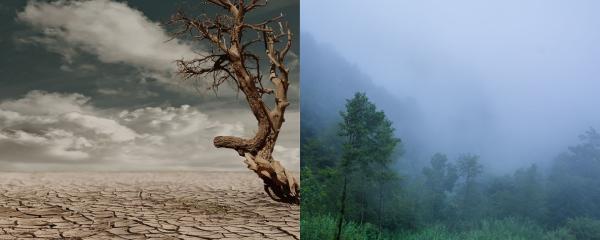
IIT Palakkad study shows how different indices used to predict drought combined with effects fof climate change can lead to different climate predictions for the future

IIT Palakkad study shows how different indices used to predict drought combined with effects fof climate change can lead to different climate predictions for the future
Researchers from the University of East Anglia, UK, and the M S Swaminathan Research Foundation (MSSRF), Chennai, India, have explored how women’s work in agriculture affects nutritional outcomes for the family. The study found that although agricultural outputs have increased with women working in the farms, it has left them with little time to cater to the nutritional needs of their families and themselves, resulting in malnutrition.
Study explores how farmers spend on pesticides in cotton farms based on land size, irrigation and tenancy.
Study from National Institute for Advanced Studies, Bangalore, documents some astounding facts about India’s ancient metallurgical processes
Researchers at IISER Kolkata study the behaviour of free-ranging dogs in India to understand their food preferences.
It is hard to live without a good night’s sleep. However, 22% of the people in industrialised countries do that regularly, when they work in shifts, including those during the night. Working in different shifts disrupts the body’s circadian rhythm—a natural process in our body that regulates the sleep-wake cycle.
Researchers at the Indian Institutes of Technology at Kharagpur and Kanpur, and also from Princeton University, USA, have designed a model, based on social networks of voters, to make reliable predictions on the ‘surprise’ element of election results and suggest possibilities of decreasing it.
A recent study by an international group of researchers has revealed some unpleasant reality of a government-aided program in Bihar for diagnosing leprosy and has estimated the efficiency of an approach that can promote accurate diagnosis of the disease.
Jack: That, my dear Algy, is the whole truth pure and simple.
Algernon: The truth is rarely pure and never simple.
— Oscar Wilde in The Importance of Being Earnest
In a series of articles, Research Matters tries to explain the commonly accepted process of scientific methodology, the interpretation of scientific studies and the obvious pitfalls. It is hoped that this series will help lay public in analysing any understanding published scientific studies for what they are, instead of believing just because ‘scientists say so’. This article is the first in the series.
Every year, the 5th of June is observed as the World Environment Day to “encourage worldwide awareness and action to protect our environment”. For 2019, the theme is ‘Air Pollution’, and the host country is China. On this occasion, Research Matters caught up with three leading scientists from the country that are actively pursuing research on different aspects of air pollution. The three researchers, Prof. A R Ravishankara, Prof. S K Satheesh and Prof. Navakanta Bhat shared their work and thoughts on the ‘burning’ problem of air pollution.
Researchers at the Karnataka Health Promotion Trust, Bengaluru, have assessed the cost effectiveness of a self-help group program, called Parivartan, in Bihar. They studied the economics of implementing maternal health programs through self-help groups.